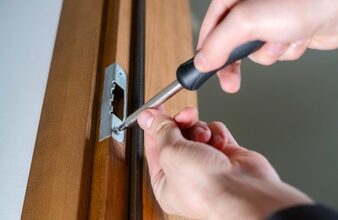10 Self-Study Tips to Ace Your Studies

Nature has created students in such a way that they may self-direct their own learning. Learning is natural in virtually all students, which is why they prefer to learn independently by exploring, watching, inquiring, and interacting. If they are given the opportunity to thrive, their natural learning instinct will operate best. Do you, as a higher education community, offer them this chance?
Coercive education is no longer effective. The conventional paradigm of higher education, which emphasises rote memorization, a lack of student experience, a low-demanding curriculum, and a lack of learning flexibility, is being criticised. This has frequently hampered students’ ability to acquire sophisticated thinking and problem-solving abilities, which are critical in their daily lives. What if every student is taught to be a self-motivated, self-directed learner?
Top tips to ace your studies:
1. Stay away from distractions.
Excessive usage of cell phones and laptop computers may be distracting. Set aside time to study and concentrate.
When you’re finished, set aside some time to relax and unwind by listening to music, napping, or doing whatever you like.
2. Inform others who will be studying at home.
To minimise unneeded disruption, it is important to inform your family that you are studying.
This will provide you with some peace and quiet so that you can concentrate.
3. Concentrate well
It is pointless to study if you are not focused. Stay committed and focused throughout the time you’ve set up.
It’s excellent if you study longer than you planned. That is to say, your hyper-focus aided you in studying harder and preparing more than you had anticipated.
When you’re bored or unfocused, take a few minutes to stretch, eat some snacks, and then get back to studying.
4. Give yourself a reward
Don’t forget to reward yourself for your hard work. It may be tough to study in these times when the entire globe is suffering from a pandemic.
Remember to treat yourself by eating your favourite dessert, watching your favourite web series, or simply napping, whichever you want.
5. Continue reading
Whether you’re reading for enjoyment or for information, keep going.
Reading boosts your vocabulary and improves your grammar, according to studies. It also helps to keep your mind active during downtime.
6. Establish objectives
Set some achievable and reasonable goals for yourself. The objectives should not be easy to attain or difficult to achieve. Before you establish your calibre, do some research?
Reward yourself or take a break once you’ve reached your goal.
7. Look after your physical well-being
Physical activity is really necessary for a healthy brain. Indoor games, regular exercise, dancing, and a balanced diet are all recommended.
When you are physically healthy, you come up with more creative ways to improve yourself.
8. Take care of your mental health
In these trying times, it’s critical to take care of your mental health. Learn to control your emotions.
A person who is emotionally powerful is more likely to be focused and concentrated on their objectives.
9. Improve your learning abilities
Concentrate on improving your academic performance. Improve your handwriting and learn how to take notes that will stick with you for a longer period of time.
Be a well-organized student who completes assignments on time and is innovative.
10. Maintain your social ties
Use video chats and other tools to keep in touch with your classmates and batchmates on a frequent basis.
Have healthy talks about a variety of academic and non-academic subjects. Loneliness can result from social isolation. Make it a point to communicate with them on a daily basis.
In terms of the sorts of learners it creates, the advantages of self-directed learning might vary.
Conclusion
Being self-taught allows a student to achieve higher grades. When a student competes with himself, it is a healthy competition. Self-study protects one from zoning out during an examination since it assists in better knowledge of the subject matter. Students are more focused and have a greater understanding of the material. All of these things help you get better grades.
Rather than paying for private tutoring, parents should strive to instil in their children the habit of self-study. Self-study assists the student in identifying and correcting his own errors. The greatest way to learn is to do it yourself. If you need assistance with Assignment Help, do not hesitate to seek the best professional assignment help.





